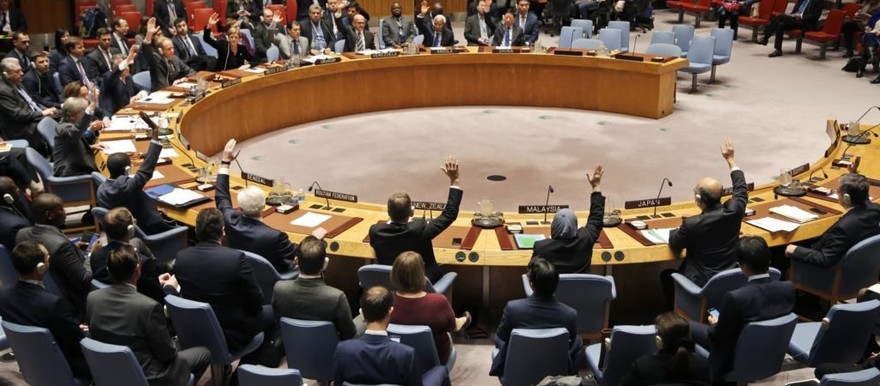A UN Experts report says it is highly probable that Dong Samuel Luak, a prominent South Sudanese lawyer and human rights activist and Aggrey Ezbon Idri, a member of the opposition SPLM-IO were killed by South Sudan National Security in 2017.
The report was released on April 30, 2019, by the UN Panel of Experts on South Sudan mandated by the UN Security Council in 2018.
According to the report, both Aggrey and Dong were kidnapped in Kenya by the Internal Security Bureau of South Sudan acting on orders from Director General of the Internal Security Bureau, Lieutenant General Akol Koor Kuc. The men were then flown on a commercial plane to Juba on 27 January with the help of the South Sudanese Embassy in Nairobi.
On arrival to Juba, the report says, the two men were taken to the National Security Service headquarters, commonly known as “the Blue House” and were detained in solitary confinements, Aggrey in the political section while Dong in the Criminal section.
The UN experts said according to evidence gathered, the two men were transferred from the Blue House on 27 January at night to another National Security Service detention and training facility in Luri.
“The Panel has received and reviewed a number of independent reports from multiple, highly credible and well-placed sources. These accounts corroborate each other across a number of key details, leading the Panel to conclude that it is highly probable that Aggrey Idri and Dong Samuel Luak were executed by Internal Security Bureau agents at the Luri facility on 30 January 2017, on orders from the commander of the National Security Service training and detention facilities in Luri, the Commander of the National Security Service Central Division and, ultimately, Lieutenant General Akol Koor Kuc,” reads the statement in part.
On Tuesday, the families of the two told Radio Tamazuj that they had been briefed that Dong And Aggrey were dead, ending more than two years of agony and search for the two men.
“Their tragic deaths offer a sobering reflection of the challenges posed to the implementation of the revitalized peace agreement by the violent legacy of South Sudan’s conflicts while highlighting the increasingly unchecked discretionary power of the National Security Service,” the report further said.
NSS exudes extreme powers/ distancing itself from ARCSS
The report further highlights that the NSS and the Internal Security Bureau has positioned itself to operate outside the rule of law, saying this poses a threat to the peace process and general stability in South Sudan.
It notes that the NSS basks in its financial independence with funding from the Office of the President with evidence showing a yearly increment, and other independent commercial revenue streams including working with Nilepet, Dar Petroleum Operating Company and the Bank of South Sudan.
Three companies were identified as NSS property including Sudd (Suud) Security Services Co. Ltd, Sudd Security Services and Property Co. Ltd and National Oil and Gas Co. Ltd.
According to the report, the NSS is also responsible for detaining government critics outside the normal judicial process in the Blue House and another detention center allegedly notorious for torture located on the Nile River between the immigration and police facilities, known as “Riverside”.
Testimonials heard by the panel, detailed beatings, torture and use of electric shock as well as extrajudicial killings through two small killing squads known as “Inside Tiger” and “Outside Tiger”, both of which are under the command of Lieutenant General Akol Koor Kuc.
In contravention of the peace agreement, “the Panel has confirmed the recent recruitment by the National Security Service of at least 3,000 new forces in Tonj and Gogrial, the respective homes of Akol Koor Kuc and President Kiir, with ethnic and tribal affiliation becoming an increasingly greater focus of the most senior government officials. New National Security Service recruits are reportedly receiving training at a facility located in Ananatak. The training is allegedly supported by an international company that may be operating locally as “Marchant – Mighty Warriors Tactical Training”.
The panelists found that the head of the NSS Koor has repeatedly distanced the NSS from the peace deal saying it is not subject to the cantonment provisions and NSS does not intend to vacate civilian areas.
Status of the R-ARCSS
The report points out that the implementation of the peace agreement has been challenged by delays and occasional obstruction with little substantive progress on the most challenging provisions, notably political boundaries, the devolution of power, and security provisions.
The experts say the government remains reluctant to share control of key parts of the political, security and economic landscape of South Sudan and allowed the NSS to become a significant and parallel fighting force operating outside the rule of law and the framework for the peace agreement.
It also notes that the regional context in which the agreement is being implemented has shifted with domestic instability in Sudan, one of its key guarantors, and other regional disputes having emerged as competing priorities for Uganda. The panel has also noted the presence of foreign military forces in South Sudan.
The five-member Panel consisting of a natural resources expert Michael Gibb, an arms expert Dean Gillespie, a finance expert Andrei Kolmakov, an expert on humanitarian affairs Renifa Madenga, and an expert on armed groups and regional issues Emilio Manfredi was commissioned in August 2018 by the UN Security Council.




